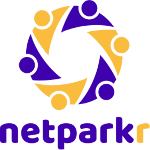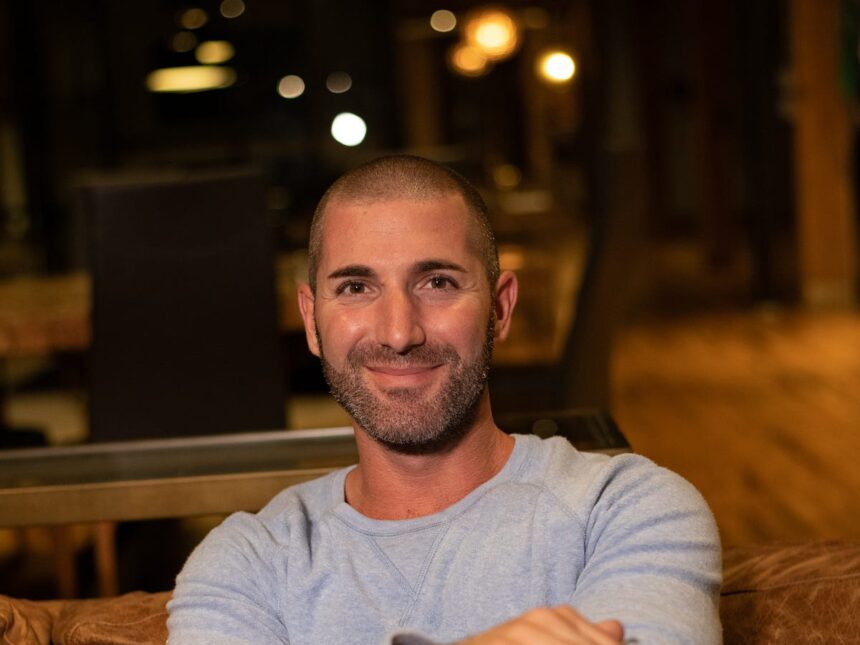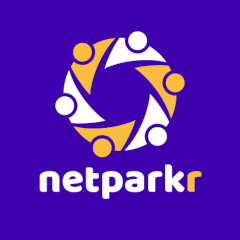Four friends, Blake Baratz, Drew Levin, Danny Perkins, Blake owns The Institute for Athletes, Blake has connections to finance and grow BxM, and Blake has 10 years of marketing experience. Creativity, tenacity, and a strong will to succeed are essential for entrepreneurship success. Success in business requires creativity, perseverance, and passion. Passion is the most important quality, as it inspires people to act with zeal and excitement. Brick x Mortar is looking to grow their business by adding more sites.
Brick + Mortar is a Twin Cities-based social group and shared workplace that is accessible solely by invitation. Zach Sussman is one of the organization’s co-founders. For well-known businesspeople, professional athletes, and reputable community, corporate, and charitable leaders in the Twin Cities, Brick x Mortar has evolved into their second home and primary networking location.
Zach is a hospitality specialist who also teaches others how to start successful new businesses from scratch and much more.
What is (Brick x Mortar) composed of?
For members exclusively, Brick x Mortar (BxM) is a private social group with a shared workspace. Diverse innovative entrepreneurs and inventors with a social conscience make up our community. Our facility is a luxurious refuge in an old four-story brownstone with a rooftop terrace overlooking the cityscape of Minneapolis, where our members may work and socialize in total comfort.
Describe your background and the founding of your company.
Four close friends worked tirelessly on BxM because they wanted to provide something special to Minneapolis. Blake Baratz, one of our partners, had the idea for the company, and we all contributed different business experiences and skill sets to make it a reality. The location selection and build out were greatly aided by Drew Levin and Danny Perkins, who both have real estate backgrounds.
Blake owns The Institute for Athletes, a sports management company, and he has a wide range of connections that were essential to the financing and growth of BxM. My 10 years as vice president of marketing for one of Minnesota’s top hotel corporations gave me insight in the industry. As a result, the emphasis of my business participation has been on growing our staff, upholding community standards, and engaging members in various activities, such as special events and brand collaborations. We have all actively contributed to the vision for BxM and its evolution into what it is now since we opened our doors more than five years ago.
Which top three skills, in your opinion, are essential for entrepreneurship success? Why?
Creativity, tenacity, and a strong will to succeed are the top three traits needed to be a successful entrepreneur.
For every business to succeed and grow, creativity is necessary. You must have the flexibility to adjust to a wide range of variables that could affect your company and your goals.
Success in business also requires perseverance. You will run across challenges along the road, and things won’t always go as planned. To succeed, you must have the fortitude to push through challenges and find creative solutions to issues.
Of these three qualities, passion may be the most crucial. You have to give your all to your pursuits if you want to succeed. Your desire for innovation and tenacity will be inspired by your passion, which will also inspire people who are crucial to the success of your business—namely, your staff and customers—to act with zeal and excitement.
What are your long-term goals and how do you plan to grow this business?
We are looking for ways to grow Brick x Mortar by adding more sites. Profits have never trumped passion in this industry, so we’ve expanded gradually and methodically, putting the membership experience and our community first before thinking about new sites. We are finally ready to grow our community and share what we’ve produced with new members in new areas after five years of proving the concept’s viability.
What effects have the epidemic and lockdown had on you or your startup?
During the early phases of the pandemic, we had no idea how long the quarantine would endure or what COVID-19’s long-term ramifications would be on our economic model. Due to their inability to access the space, we provided our members the choice to put their memberships on hold; nevertheless, much to our great surprise and happiness, very few members made this decision. Additionally, we were inundated with messages from members telling us how important BxM was to them and requesting assistance in making sure we would still be operating when the lockdown was lifted.
People told us they would gladly pay early dues or help us in any other way they could. This showed how important BxM was to our community and how important BxM was to our members. It greatly reduced the negative effects of COVID and got rid of a lot of worry and uncertainty. We discovered that our members shared our enthusiasm for the community, and that if we persisted in our enthusiasm for it, we would be able to overcome any challenge.
How do you set yourself out from your competitors?
We don’t view ourselves as competitors; instead, we are totally committed to realizing our mission and giving our members the best community and experience we can. When we produce the best product, we are in the advantageous position of not having to worry about what our rivals are doing and instead being able to concentrate on carrying out our vision and delivering a superior product. It is tough to view them as competitors because no one else in our industry performs the same functions as we do.
What did you learn from the three greatest mistakes you made while starting your business?
We wanted the area to seem more like a home than a place of business, so that members would feel safe utilizing the kitchen and getting to the refrigerators behind the bar, among other things. We ended up organizing a lot of events in the space, so it would have been beneficial to have a professional kitchen and bar set up for caterers to use in order to maximize event execution. We recognized that many of the choices we took during the launch phase were speculative and that we would need to be responsive and pliable once the firm was operating because we were creating a completely new concept and business model that did not already exist.
There were problems with our tenancy’s rules and the actual rented space as well. Instead of leasing the land, we would have been better off owning it, giving us full control over the area and the opportunity to do anything we wanted with the physical premises at the BxM site.
Last but not least, we would have spent more effort upfront defining best practices for our staff. We had to learn on the fly and were more reactive than proactive in everything from opening and closing procedures to uniforms to community standards, which was not the attitude we wanted for our club and its members. However, we learned a lot in the first few months of operation that has helped us refine the business model, including employee training, best practices, and becoming a better organization for our employees to learn and grow. These challenges were more ‘behind the scenes’ and had little impact on the member experience.
What marketing tactic has been the most successful for you?
Brick x Mortar was designed to be a venue that only those “in the know” could visit, therefore we had to be strategic and subdued in our promotion. With events, earned media, and word of mouth, we aimed to introduce potential members to the space.
We were able to capitalize on what we were already doing to draw new potential members to the site and create excitement among our members through exclusive special events since special events for members were built into our business strategy from the start.
Regarding earned media, the Super Bowl was hosted in Minnesota around six months after we first opened, and we rented the location to a renowned talent agency from Los Angeles before we ever opened our doors for the Super Bowl week. They used the area for organizing exclusive gatherings with A-list celebrities. Only individuals with really strong connections were allowed entry, making it the place to be during Super Bowl week. The event was covered extensively by local and national media, which helped to establish our reputation as an elite and alluring setting that people wanted to be a part of.
We’ve depended significantly on word-of-mouth from our members, who have attracted additional intriguing and like-minded individuals into our community, in addition to events and public relations.
What challenges did you face that you overcame the most?
The epidemic and following lockdown, as well as the long-term structural change to work from home and its impact on our firm, were by far our biggest challenges. Short-term challenges included having to shut our doors during the shutdown and the uncertainty caused by the outbreak. We had to prepare for a wide range of possible outcomes, including how we would keep the company running depending on how long the lockdown lasted and how much we could accomplish during the pandemic once the lockdown was released.
We were lucky enough to survive the lockdown, but the limitations on the amount of individuals we could let into the area after the lockdown, while COVID was still seething, seriously hampered our capacity to function. Our primary priority was the safety of our members and guests, so we made a number of changes to our business model to keep people safe while continuing to run the company. It took some time, which had a big impact on our firm, but eventually we were able to return to a more conventional business model.
Many of our members no longer worked downtown due to the long-term impacts of remote work, which is still the norm for many, and as a result, they were no longer close enough to the club for membership to be beneficial. On the other hand, because people were working from home, we had a surge in new members who needed a place to work away from their homes. They also wanted a gathering space that was naturally less congested than bars and restaurants that were trying to maximize foot traffic and make up for their losses from the epidemic. As a result, COVID had a negative overall impact on our company over the long run, but in the end, we added a lot more new members than we lost.
What did you manage to accomplish with your initial company concept?
When I was around seven years old, I had my first business idea. I used to go door-to-door collecting pebbles from my neighbors’ yards, painting them, and selling them. I felt it was a great business idea, but my parents thought it was funny that I was selling them the pebbles they had given me back.
What productivity tip do you follow?
The single most effective productivity tip I’ve learned is to have an empty inbox. I react to every email I get right away if I can, pass it to the right team member for follow-up, or note it for later follow-up if a lengthier answer or more research is needed. This helps me stay organized, spend less time reading emails again, reply promptly to keep efforts going ahead, and prevent having too many things in my mental pipeline that need to be addressed at once.
What is your favorite quote? Why does it matter to you?
My favorite quotation is
Comparison steals happiness, as the saying goes.
– Theodore Roosevelt, the president
This saying has always resonated with me, but since I have a small son who is growing up in the social media era, it has evolved into one of the most important things I hope to impart to him. Making comparisons with other people or your competitors may be harmful to your achievement and fulfillment on both a personal and professional level. On a personal level, sincerity and happiness with oneself are essential elements of a successful and healthy living. On a professional level, comparing yourself to rivals or coworkers might make you lose sight of what makes you distinctive and put you at risk of seeming derivative. It is important to be informed of what others are doing from a competitive aspect. You run the danger of losing your vision, your passion, and eventually your happiness if you constantly compare yourself or your company to others.
For further information
You can check our site or my LinkedIn profile
We gather unique business case studies from all over the internet, to inspire you with a wide range of business ideas. This case study was supervised by our team and it definitely caught our interest. You can find other inspiring business stories here.







